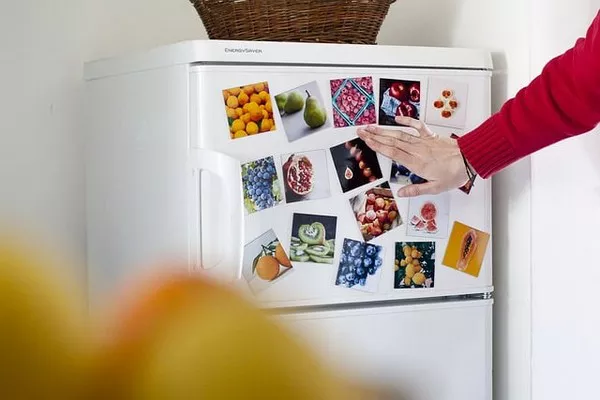In the realm of modern conveniences, refrigeration stands as one of the most critical technologies, preserving food, medicine, and a myriad of other perishables. As the world evolves, so does the demand for more efficient, sustainable, and technologically advanced refrigeration solutions. This article delves into what makes a refrigeration system the world’s number one, exploring the leading contenders, their innovations, efficiency, and the criteria that set them apart in the global market.
The Criteria for Excellence in Refrigeration
To determine the world’s number one refrigeration system, several key factors must be considered:
Energy Efficiency: The best refrigeration systems minimize energy consumption while maximizing cooling performance.
Environmental Impact: With increasing awareness of climate change, the top systems utilize eco-friendly refrigerants and have minimal carbon footprints.
Technological Innovation: Advanced features such as smart controls, enhanced insulation, and superior compressor technology are hallmarks of leading systems.
Market Leadership: Sales figures, global presence, and brand reputation are crucial indicators of a system’s dominance.
Reliability and Durability: The longevity and dependability of a refrigeration system are critical for consumer trust and satisfaction.
Customer Satisfaction: Reviews, ratings, and feedback from users provide insight into the practical performance and usability of the system.
Market Leaders in Refrigeration
1. Whirlpool Corporation
Whirlpool is a household name synonymous with reliable and efficient home appliances. The brand’s refrigerators are renowned for their energy efficiency, innovative features, and robust design. Whirlpool’s commitment to sustainability is evident in their use of eco-friendly refrigerants and energy-saving technologies.
One of Whirlpool’s standout models is the Whirlpool WRS325SDHZ. This side-by-side refrigerator boasts advanced temperature management systems, adjustable storage options, and a sleek stainless steel design. Its Accu-Chill™ Temperature Management System ensures optimal cooling, while its adaptive defrost system helps reduce energy consumption.
2. Samsung Electronics
Samsung has made significant strides in the home appliance market, particularly with its line of refrigerators. Known for integrating cutting-edge technology, Samsung refrigerators offer smart features that cater to modern households.
The Samsung Family Hub Refrigerator is a prime example. This refrigerator goes beyond traditional cooling by incorporating a touchscreen interface that allows users to manage groceries, plan meals, and even control other smart home devices. Additionally, its FlexZone™ compartment can be adjusted to function as either a refrigerator or a freezer, providing versatile storage solutions.
3. LG Electronics
LG is another major player in the refrigeration market, celebrated for its innovative designs and energy-efficient models. LG’s InstaView™ Door-in-Door® refrigerators are particularly popular, featuring a glass panel that illuminates with two quick knocks, allowing users to see inside without opening the door and thus reducing cold air loss.
The LG LFXS26973S model stands out with its SmartThinQ® technology, enabling users to control key features and get notifications through a smartphone app. This model also features a Craft Ice™ maker, producing slow-melting ice spheres ideal for beverages, which is a unique selling point.
4. Sub-Zero
Sub-Zero has built its reputation on high-end refrigeration solutions that blend luxury with advanced cooling technology. Known for their superior build quality and precise temperature control, Sub-Zero refrigerators are a favorite among professional chefs and culinary enthusiasts.
The Sub-Zero BI-42S/S is a flagship model, offering dual refrigeration technology that ensures the freshest food preservation. Its air purification system, based on NASA technology, scrubs the air of ethylene gas, mold, viruses, and bacteria, keeping food fresher for longer.
Technological Innovations Shaping the Future
The refrigeration industry is rapidly evolving with numerous technological advancements that are reshaping consumer expectations and industry standards.
Smart Technology
The integration of smart technology into refrigerators is one of the most significant trends. Brands like Samsung and LG are leading the charge with models that feature internet connectivity, touchscreen interfaces, and app-based controls. These smart refrigerators allow users to manage their appliance remotely, receive alerts for maintenance issues, and even order groceries online.
Energy Efficiency
With growing environmental concerns, energy efficiency is a critical area of innovation. Modern refrigeration systems are equipped with advanced compressors, improved insulation, and adaptive defrost systems that significantly reduce energy consumption. The use of inverter technology, which adjusts the compressor speed based on cooling demand, is a notable advancement that enhances efficiency and reduces wear and tear.
Eco-Friendly Refrigerants
Traditional refrigerants like CFCs and HCFCs have been phased out due to their harmful effects on the ozone layer and global warming potential. The industry is now adopting more eco-friendly alternatives such as R-600a (isobutane) and R-290 (propane), which have lower environmental impacts.
Vacuum Insulation Panels (VIPs)
VIPs are ultra-thin panels that provide superior insulation compared to traditional materials. They help maintain a consistent internal temperature with less energy, contributing to the overall efficiency of the refrigerator. Companies like Whirlpool and Sub-Zero are incorporating VIPs in their high-end models to enhance performance.
The Impact of Global Market Dynamics
The refrigeration market is influenced by various global factors, including economic conditions, technological advancements, and consumer preferences. The rising middle class in developing countries has led to increased demand for household appliances, including refrigerators. This growth is driving manufacturers to expand their global footprint and tailor their products to diverse markets.
Moreover, the push for sustainability is compelling companies to innovate continuously. Governments worldwide are implementing stricter energy efficiency standards and regulations on refrigerants, pushing manufacturers to develop greener and more efficient products.
See Also How to Choose a Compressor for a Refrigeration System
Conclusion
Determining the world’s number one refrigeration system involves evaluating a combination of energy efficiency, environmental impact, technological innovation, market leadership, reliability, and customer satisfaction. Brands like Whirlpool, Samsung, LG, and Sub-Zero exemplify these qualities through their diverse range of products that cater to various consumer needs.
As the industry progresses, the focus will increasingly shift towards smart technology, energy efficiency, and sustainability. The future of refrigeration promises even greater advancements that will enhance convenience, reduce environmental impact, and meet the evolving needs of consumers worldwide. In this dynamic landscape, the world’s number one refrigeration system is not a static title but a continually evolving benchmark of excellence.

